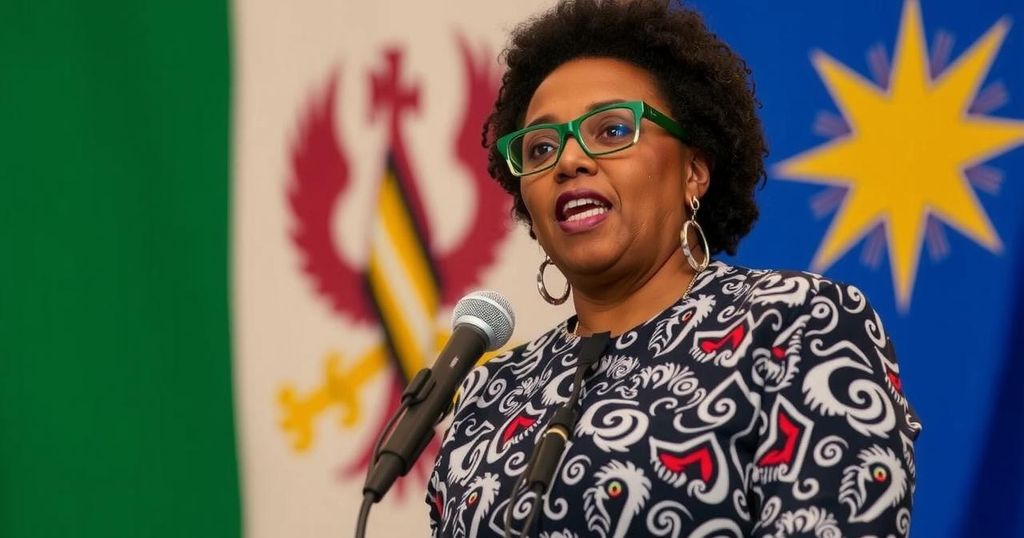World news
AFRICA, AFRICA PEOPLE ’ S ORGANIZATION, AGREEMENT, AP, DIRK HEINRICH, ELECTION, ESTHER MBATHERA, GOVERNMENT, LEADERSHIP, NAMIBIA, NAN, NANDI - NDAITWAH, NET, NETUMBO NANDI - NDAITWAH, PRESIDENTIAL CANDIDATES, PRIZES, SOUTH, SOUTH AFRICA, SOUTH WEST AFRICA PEOPLE ’ S ORGANIZATION, SWAPO, VP, WEST, WINDHOEK
Jamal Abdullah
0 Comments
Netumbo Nandi-Ndaitwah Becomes Namibia’s First Female President After Election Victory
Namibia has elected its first female leader, Vice President Netumbo Nandi-Ndaitwah, who won the presidential election with 57% of the votes. The ruling SWAPO party extends its 34-year hold on power, despite opposition complaints regarding the election process and intentions to contest the results. Nandi-Ndaitwah has a history of involvement in Namibian independence movements and took office following the death of President Hage Geingob.
WINDHOEK, Namibia (AP) — In a historic moment for Namibian politics, Vice President Netumbo Nandi-Ndaitwah has been affirmed as the country’s first female leader after winning the presidential election. The election results, announced this past Tuesday, reveal that she secured 57% of the vote, overcoming expectations that a runoff might be necessary. This election marks a continuation of the long-standing power held by the South West Africa People’s Organization (SWAPO), which has been in authority since Namibia gained independence from apartheid South Africa in 1990.
At 72 years of age, Nandi-Ndaitwah’s ascent to the presidency follows her tenure as vice president, a position she assumed in February after the unfortunate passing of President Hage Geingob. She has deep roots in Namibian political history, having participated in the underground independence movement during the 1970s.
However, the election process faced significant challenges, marked by technical issues such as ballot paper shortages, which led to an extended voting period. This extension has drawn criticism from opposition parties, who argue it was conducted illegally and intend to contest the election results in court. In doing so, they reflect ongoing tensions within the political landscape of Namibia.
Namibia has embarked on a significant political milestone with the election of its first female president, a position formerly occupied by male leaders since its independence in 1990. The ruling SWAPO party has maintained its grip on power throughout the nation’s history, and the recent election results emphasize this continuity. The election process, however, has been marred by complications, prompting discussions about electoral integrity and fairness. Netumbo Nandi-Ndaitwah’s career trajectory from independence activist to vice president and now president highlights her pivotal role in shaping Namibian politics.
The election of Netumbo Nandi-Ndaitwah as Namibia’s first female leader signifies a breakthrough in gender representation within the country’s political framework. While her victory underlines the SWAPO party’s enduring dominance, the opposition’s concerns about the electoral process introduce critical discussions about democratic practices and transparency in Namibia’s future governance. The outcome and potential challenges raised by the opposition may set the stage for a pivotal moment in the nation’s political landscape.
Original Source: apnews.com




Post Comment